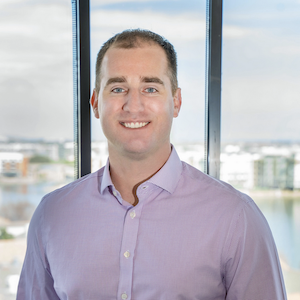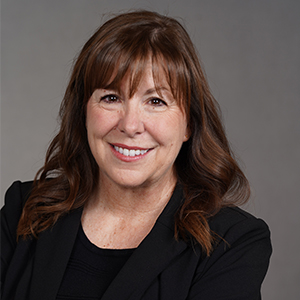Editor’s note: For 15 years, our HousingWire mission has been Moving Markets Forward. Our content is tightly focused on news and information that housing professionals need to grow their business and thrive in a constantly changing market. But in a time where housing affordability is at a new low, the struggle for a growing number of people is not in buying a home, but just in affording to rent. With homelessness on the rise in many cities, we’ve partnered with a Dallas-based organization that is taking an innovative housing-first approach to ending homelessness and seeing measurable results. This is the first in a series of articles highlighting Housing Forward and how what it’s doing for the local community can serve as a catalyst to affect change across the U.S.
The number of people who are unhoused in the U.S. has increased by about 6% every year since 2017 and in 2022 reached about 582,462 people nationwide, according to the National Alliance to End Homelessness. Of that number, 127,750 were chronically homeless, defined as not having a place to stay for at least a year.
Homelessness is often seen as an intractable problem that defies the amount of money and effort that has been deployed to solve it. However, some cities have made real progress in reducing homelessness, including the Dallas/Fort Worth metroplex, where Housing Forward, formerly Metro Dallas Homeless Alliance (MDHA), is proving that a housing-first approach can work.
Housing Forward was founded in 2002 and is structured as a non-profit 501(c)(3) organization. The organization exists for a single purpose: ending homelessness in Dallas and Collin counties. While Housing Forward is locally focused, its progress in meeting this goal has made it a national model for efficacy and impact that’s been recognized by the U.S. Department of Housing and Urban Development (HUD) and companies in the private sector.
Its success also provides a counter to the idea that homelessness is mostly about mental health issues and is too complex to solve. In fact, focusing on rapid rehousing, Housing Forward has made notable progress in reducing homelessness.
Housing Forward measures its success against the objectives of making homelessness rare, brief and non-recurring. Since 2022, Dallas and Collin Counties have seen:
- An 18% increase in people exiting homelessness to permanent housing (Rare)
- The number of days an average person experiences homelessness is 95 days. Any amount of time is too long, but landlord engagement and counseling has reduced this home search time.(Brief)
- 92% of previously unhoused people remain housed after 12 months, compared to the national average of 87%.(Non-recurring)
In its 2023 point-in-time (PIT) count of people who are unsheltered, Housing Forward and a team of 850 volunteers counted 4,244 homeless individuals in Dallas and Collin counties on one night. Of those, 28% were unsheltered and 72% were sheltered. This total represents a 3.7% decrease from the 2022 count and a 7.1% decrease since 2021. Even more significant, it represents a 14% decline in unsheltered homelessness and a 32% decrease in chronic homelessness.
Rapid rehousing
How did the organization achieve these results? Sara Craig, Housing Forward’s vice president of development and communications, said the organization recognized in 2020 that it had an opportunity to direct COVID relief funds to end homelessness and developed a strategic plan to be ready for that investment.
In October 2021, Housing Forward leveraged $72 million in federal dollars and housing vouchers from the American Rescue Plan Act, in addition to some private funding, to launch the R.E.A.L. Time Rehousing Initiative.
That rapid rehousing initiative included:
- Increasing case manager positions so that individuals could immediately access supportive services
- The addition of a landlord engagement team that could find available units with landlords willing to accept housing vouchers to increase housing placements
- The addition of Encampment Decommissioning, where trained representatives from Housing Forward and partner organizations engaged individuals living in encampments and immediately connected them to housing and supportive services to end their experience with homelessness.
The success of Housing Forward’s approach has attracted more funding. The organization secured $1.25 million from the Bezos Day 1 Families Fund, and in February of 2023, HUD awarded it $22.8 million to expand homeless street outreach, permanent housing options and supportive services. Dallas is among 46 communities nationwide that received $315 million total from HUD.
Housing Forward doesn’t achieve its outcomes alone. The organization leads and works with the All Neighbors Coalition, a collective of over 100 organizations. The strength of that coalition enables the quick, strategic response of housing advocates to the changing needs of people who are unhoused in the Dallas-Fort Worth area.
There are currently more than 3,000 people enrolled in Housing Forward’s rapid rehousing initiative and it has already housed more than 2,300 of them. With the new funding, Housing Forward expanded its original goal and plans to serve 6,000 individuals and families by 2025.
Homelessness is a solvable crisis
HUD’s investment in Housing Forward and other organizations didn’t happen in a vacuum — its a reflection of the priorities of HUD Secretary Marcia Fudge. In a press statement announcing the awards, Fudge said, “Homelessness is a crisis, and it is solvable. Housing with supportive services solves homelessness. That’s why, for the first time, the federal government is deploying targeted resources to meet the needs of people experiencing homelessness in unsheltered settings or in rural areas.
“With these grants and vouchers, HUD is filling this gap and giving communities the resources and tools to improve housing and health outcomes for people on the streets, in encampments, under bridges, and in rural areas.”
While many people think mental health issues are a main driver of homelessness, Marisa Calderon, chief of community finance and mobility at the National Community Reinvestment Coalition and executive director at the NCRC Community Development Fund, said in an interview with HousingWire that homelessness is increasingly linked to housing costs.
“There are many working people and families who are homeless,” Calderon said. ”The reason someone is unhoused should not be because housing is unaffordable. Entire countries like Finland have figured out a way to solve for homelessness, or having a housing-first approach. In our communities, we need multiple stakeholder engagement: unhoused populations are part of the housing ecosystem that we need to solve for.”
As Housing Forward’s Craig notes: “Housing is the only thing that ends homelessness.”
Learn more about Housing Forward at www.housingforwardntx.org.







